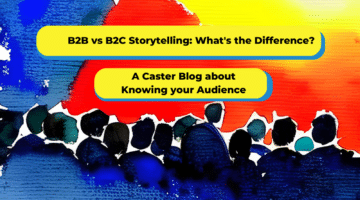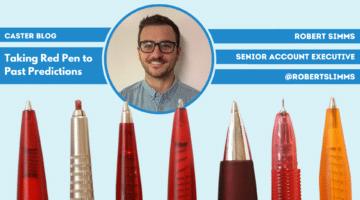The Brand Launch Laundry List
Our clients span the whole business lifecycle. At one end of the spectrum, we have category-making clients like Crestron and Hunter Douglas with established messaging, brand recognition, and well-understood technology. On the other end are fledgling startups with, well, none of those things. Many clients come to us in stealth mode for our seasoned expertise […]
B2B vs. B2C Storytelling: What’s the Difference?
When assessing each client’s particular audience, one of the first things we determine is who they sell to: are they B2B (business-to-business) or B2C (business-to-consumer)? B2B and B2C storytelling are remarkably different, so here’s a quick rundown of what you need to know to reach, engage with, and persuade these two distinct audiences effectively: B2B […]
Taking Red Pen to Past Predictions
We are in a golden age for technology industry prediction articles. A Google search for “2023 tech industry predictions” finds 212 million results. Turn to just about any mainstream technology or business publication and you’ll see a recent piece compiling commentary from glamourous lists of CEOs and innovators. Setting aside the obvious technological advancements in […]
To Keep Growing, Pro AV Needs to Stop Graying
Fresh off his first InfoComm, Caster’s Robert Simms realizes Pro AV needs to stop graying if it wants to keep growing CNN journalist Harry Enten wrote the following passage in early April as the baseball season kicked off: “When my father, born in 1927, was my age, Opening Day was one of the biggest events […]
An Autopsy of Incorrect Tech Predictions
But What if We’re Wrong?, a book by author and former New York Times Magazine essayist Chuck Klosterman, advocates for looking at the present as if it were the past. The impetus for such an exercise is that throughout history, humans have repeatedly had extreme confidence in beliefs, predictions, or “truisms” that time eventually proves […]





